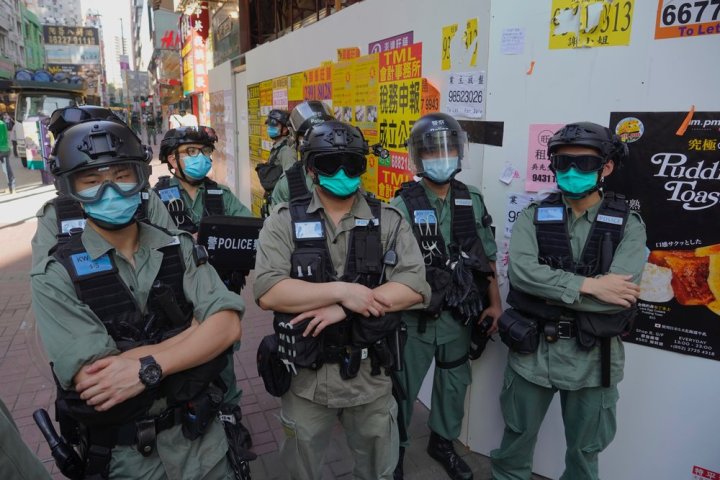[ad_1]

China‘s parliament passed national security legislation for Hong Kong on Tuesday, setting the stage for the most radical changes to the former British colony’s way of life since it returned to Chinese rule almost exactly 23 years ago.
Cable TV, citing an unidentified source, said the law was passed unanimously by the Standing Committee of China‘s National People’s Congress.
A senior Beijing adviser on Hong Kong policy, Lau Siu-kai, told the New York Times that lawmakers voted unanimously to approve the national security law. The Times also cited Hong Kong newspapers, Wen Wei Po and Ta Kung Pao, that serve as conduits for official policy from Beijing. The Washington Post and the BBC cited unnamed sources in their own reports.
The legislation pushes Beijing further along a collision course with the United States, Britain and other Western governments, which have said it erodes the high degree of autonomy the global financial hub was granted at its July 1, 1997 handover.
In response to the legislation, the United States began eliminating Hong Kong’s special status under U.S. law on Monday, halting defense exports and restricting the territory’s access to high technology products.
Hong Kong leader Carrie Lam, speaking at her regular weekly news conference, said it was not appropriate for her to comment on the legislation as the meeting in Beijing was still ongoing.
A draft of the law has yet to be published. Beijing says the law, which comes in response to last year’s often-violent pro-democracy protests in Hong Kong, aims to tackle subversion, terrorism, separatism and collusion with foreign forces.
This month, China‘s official state agency Xinhua unveiled some of its provisions, including that it would supersede existing Hong Kong legislation and that the power of interpretation belongs to the Chinese parliament’s top decision-making body, the National People’s Congress Standing Committee.
Beijing is expected to set up a national security office in Hong Kong to “supervise, guide and support” the city government. Beijing could also exercise jurisdiction on certain cases.
Judges for security cases are expected to be appointed by the city’s chief executive. Senior judges now allocate rosters up through Hong Kong’s independent judicial system.
It is still unclear which specific activities are to be made illegal, how precisely they are defined or what punishment they carry.
The South China Morning Post, quoting an unnamed source, said Xinhua will publish details of the law on Tuesday afternoon and Hong Kong officials will gather at Beijing’s top representative office in the city later in the day for a meeting on the legislation.
[ad_2]
Source link
Dear readers, we really need your support to keep on serving you with authoritative, truthful, and juicy stories everyday. For your support, please reach out to the editor @gavelinternational66@gmail.com

